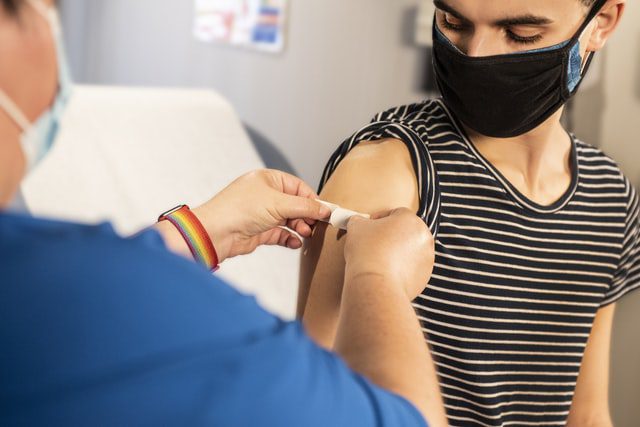
FTM Period Came Back
A menstrual cycle can be a source of gender dysphoria for many trans men, and it is not uncommon for a trans man to pursue hormone therapy or even surgery as a means to stop the menstrual cycle. Both hormone therapy and certain bottom surgeries will impact the menstrual cycle. Specifically, the administration of testosterone and progestins, and/or the removal of ovaries, the uterus, or a procedure called endometrial ablation. Top surgery has no impact on vaginal bleeding but can relieve gender incongruence among trans people.
For the purpose of this article, we want to start by saying that the choice to take testosterone therapy is a very personal one, and most of the information provided here is related to taking testosterone. Your experience will likely be completely unique, and if you do not fit the timelines or information provided, it does not mean that something is wrong or that your experience is abnormal.
We are providing standard information that is most likely to occur but is never guaranteed. Even studies involving human participants report widely varying outcomes of testosterone treatment.

How Hormone Therapy Affects the Menstrual Cycle
When we talk about hormone therapy, we are specifically referring to testosterone treatment. Trans men take testosterone to initiate the development of male secondary sex characteristics. While it is generally advised that hormone therapy should be taken long-term, it is not uncommon for transgender men to prefer a shorter-term testosterone regimen. Others still might need to stop treatment due to other factors like health risks or severe side effects.
Starting Testosterone
When you initially start taking testosterone, one major thing will impact your hormone regimen: your age. Remember that the goal is to achieve serum sex steroid levels akin to those of a cisgender man, and as with post-menopausal women experiencing decreased hormone levels, so do men over a certain age.
The Goal
The goal of testosterone therapy will always be to maintain a normative level of serum sex steroid levels, as can be found in cisgender men; the goal would never be to exceed these levels unless there is a separate medical reason to do so. The management and testing of serum testosterone levels is part of outpatient care and does not require hospitalization.
What increased testosterone levels actually do to the menstrual cycle is straightforward: it stops the formation of the endometrial lining. No endometrial lining means no vaginal bleeding. But for many people, it might take a while and some extra steps to get there.
What Usually Happens?
In most cases (around 82.1%, according to one study), vaginal bleeding stops within the first three months of starting testosterone therapy. If vaginal bleeding persisted, doctors usually added a progestin within the next three months, which inevitably stopped all vaginal bleeding within one year of starting testosterone therapy.
What If It Doesn’t Happen Like That?
In rare cases where vaginal bleeding persisted incessantly, doctors suggested gonadectomy, but these cases were very rare.
The first step to addressing persistent vaginal bleeding is to test testosterone levels. The goal is to get them within the physiologic male range. Once they reach that range and can remain stable, amenorrhea occurs where the period stops completely. If testosterone levels are stable within the physiological male rage and vaginal bleeding persists, then a change of testosterone brand is suggested.
If the male physiological range is not yet reached, it is suggested to have your testosterone dose adjusted so that the correct range can be reached.
Furthermore, if your period stopped for a while and has now suddenly restarted for reasons unknown, it is better to consult with your doctor.
This can be for one of three common reasons.
Firstly, an underlying medical concern such as the development of cancers. Secondly, usual age-related changes. Or thirdly, other normal hormonal changes.
It is, however, essential to establish why this has happened so that serious reasons can be ruled out. Biomedical sciences are behind in their studies of hormone replacement therapy, and therefore the long-term effect still remains uncertain.
Having Your Testosterone Dose Adjusted
The most common early adjustment to testosterone therapy will be to have the dose adjusted. Usually, the dose, or frequency of administration, is increased to achieve serum testosterone levels within the desired range. If you have or suspect that you have polycystic ovary syndrome, it is good to mention this to your doctor as it will likely impact the dosage requirements.
Age
Another scenario that might require a dose adjustment is the natural progression of age. As we age, our bodies naturally change, and our ability to naturally produce certain hormones changes as well. This will likely require a reevaluation of your testosterone regimen to suit your age better. While general practitioners can monitor hormone therapy successfully under some circumstances, they might need to refer you to clinical endocrinologists should there be significant physiological changes either associated with age or your weight.
Weight
Weight is important because estrogen levels are significantly affected by BMI and body fat levels. Higher body fat levels increase estrogen levels which require higher doses of testosterone and even progestins to bring down estradiol levels in the blood. Should you then lose weight, your dose will need to be adjusted again.

Switching Brands After You Started Testosterone
There are various testosterone preparations available, and you might need to switch your brand or type of testosterone if you are experiencing side effects. These can range between things like hot flashes or more severe effects like mood changes.
You could also want to change your brand if vaginal bleeding is persistent or if you started with testosterone gel, not realizing that it might not stop your vaginal bleeding as you might have intended. You could also find that you have polycystic ovary syndrome, which seems to be more prevalent among transgender men, and this might have an impact on which brands of testosterone work for you.
You might also have had procedures performed in the meantime, which will impact your testosterone requirement as some body composition surgical procedures impact the clinical effects of testosterone. As you go through your journey to correct gender incongruence, you might encounter extensive administration changes to your hormone therapy. It is pretty normal for hormone requirements to change over time, so it is important that you do not feel too downtrodden by changes.
What Is The ‘Physiologic Male Range’ Of Testosterone?
The male physiological range of testosterone refers to the blood serum levels that we expect to see in a physiologically male individual. So someone who was born ‘male’ and is usually cisgender. While some cisgender men can have variations in this level, there is a normative range. Variations are usually related to medical conditions where lower serum testosterone levels occur that can have side effects. The same can be seen when higher levels are reported than are considered ‘normal’ for a cisgender man.
The normative range for testosterone levels fluctuates with age. Older men have lower serum testosterone levels than men in their 20s and 30s.

Gender Dysphoria and the Menstrual Cycle of Trans Men
Understandably, when considering transgender men who are probably already experiencing gender dysphoria to some degree, it is easy to imagine that adding an active menstrual cycle can have a negative impact on their dysphoria. This is reported by many transgender men, although it is not the case with each and every one.
Therefore, it might be crucial for the mental health of some transgender men to effectively suppress vaginal bleeding, where persistent vaginal bleeding might not be such a big problem for others. It is important to treat each case individually and to remember that there is no right or wrong way to feel about it.
There are some blogs available where transgender men indicate that their menstrual cycle or period does not cause dysphoria and that they do not have a problem with vaginal bleeding, especially when they want to maintain their fertility. However, since gender is a socially constructed concept, it is not so far off the map to try and separate a menstrual cycle or period from the traditionally feminine box it usually comes in.
Ideally, transgender men should be able to discuss their period openly. It is a condition associated with their reproductive organs, not necessarily their gender, and there is very little reason why a period must be associated with womanhood. We have gotten to a point where we understand that body composition does not always correspond with perceived gender, so naturally, we should be able to further that understanding to a period as well?
If you find that you are uncertain how to feel about vaginal bleeding and that you might want to maintain your fertility or do not want to rely on hormone therapy to stop your period, then it could be beneficial to get in touch with a support group. There are likely other men there who have experienced similar feelings and can offer valuable contributions to your outlook on the matter.

Which Testosterone Preparations Are More Effective?
At this point, there is not enough empirical research available to accurately answer this question. What is known for sure is that your journey through testosterone initiation and further testosterone hormone therapy for your gender incongruence will be unique. You might start on one testosterone preparation after a few weeks or even longer need to switch to a different one; you might need to go through various testosterone preparations before you find the one that works best for you.
That being said, it is becoming more evident that testosterone gel seems to be far less effective than subcutaneous testosterone injections at stopping vaginal bleeding associated with a period. The effectiveness of testosterone in a pill form has not yet been established, but upon testosterone initiation, you will likely be advised against pill forms as far as possible because they are hard on your liver.
If testosterone alone does not seem to be doing the trick after the first three months, your doctor will discuss starting progestogens in addition to your testosterone treatment. It is not advised to take these two together unless your period does not stop.
If vaginal bleeding and spotting decreased substantially but has not stopped completely, then the doctor might want to wait a few months before starting the additional medications. However, if the problem persists past a few months more and vaginal bleeding persists, then it is likely that the doctor will start you on progestins.

Can I Stop My Period Now And Later Have A Baby?
This is discussed in detail in Testosterone Withdrawal (FTM), but briefly, yes, theoretically, you can. This is a provisional of some factors. You will need to retain your reproductive organs associated with pregnancy. Several bottom surgeries make pregnancy impossible. You should notify your hormone-prescribing providers of your intention to retain your fertility.
Read more here:
Testosterone Withdrawal (FTM): Stopping Hormone Therapy
They will then discuss further options. While many transgender men who have been on testosterone preparations for quite a while do manage to become pregnant and have healthy babies, there is always a chance of reduced fertility following testosterone treatment.
You will need to stop taking testosterone when you intend to get pregnant. It might take an average of 6 months for your period to return before you can start trying to get pregnant. Remember that testosterone is a teratogen and can be very bad for your baby, so it is vital to discuss this with your doctor in advance so that the possibility of adverse effects can be minimized as far as possible.
There is also a chance that your period will not come back if you have been on testosterone treatment for a long time.
Key Takeaways
- Does testosterone stop periods? Masculinizing hormone therapy can suppress your menstrual cycle and affect your fertility and sexual function.
- Stopping hormone therapy can reverse that cycle and allow you to produce estrogen from your ovaries as well as bear a child.



